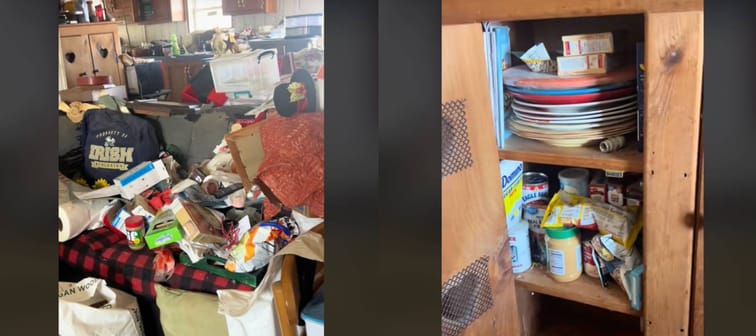When good intentions backfire
Hagewood had no choice but to start an online fundraising campaign to help cover the costs of removing her grandmother's belongings and cleaning out the property. Her ultimate goal is to salvage the long-neglected home and live there with her family one day — and she documents the experience on social media.
In Indiana, when a person enrolled in Medicaid is moved into a care facility, the state is able to take possession of the home and sell it at auction upon their passing to help recoup the costs the state shelled out for their care.
It's a process called Medicaid Estate Recovery, and it primarily affects older Medicaid recipients who require long-term care.
The Medicare and Medicaid Budget Reconciliation Act of 1993 set the stage for state programs that would recover the costs of certain benefits through estate recovery.
While states can't automatically take a Medicaid recipient's home when they're moved into a care facility, they are allowed to place a lien on their property, which can set the stage for them acquiring that property upon the owner’s death.
In Hagewood's situation, purchasing her grandmother’s home helped the family avoid that fate. However, it left Hagewood in a tough spot, logistically and financially.
So far, she's spent eight months fixing up her grandmother's home and hauling hoarded items out to the dump — and the home still isn’t ready to be lived in.
Discover how a simple decision today could lead to an extra $1.3 million in retirement
Learn how you can set yourself up for a more prosperous future by exploring why so many people who work with financial advisors retire with more wealth.
Discover the full story and see how you could be on the path to an extra $1.3 million in retirement.
Read MoreWhat to do if your relative is a hoarder
According to a report by the Washington Post, compulsive hoarding affects roughly 6% of the population — about 19 million Americans.
A hoarding disorder is a recognized mental health condition in which a person has difficulty discarding or parting with possessions. Regardless of the value of the items, it causes the person great distress to discard them.
In hoarding situations, not only do homes tend to be overrun with items of little value, but the homes themselves tend to be neglected — and the sheer volume of items can lead to a host of health and safety hazards.
For one thing, hoarding can limit ventilation inside a home, leading to respiratory issues — and when large quantities of items collect dust it can cause additional health problems.
Hoarding also tends to lead to a cycle where a home can't be cleaned or maintained because there's no way to access surfaces, floors, and other areas in need of attention. In a medical emergency, hoarding could be a serious problem by making it difficult for personnel to reach a person in distress. It’s also a fire hazard.
If you have a loved one who you suspect has a hoarding disorder, the sooner you get ahead of the problem, the more positive the outcome might be.
A good starting point is to research medical professionals in your area who are equipped to deal with hoarding so your loved one can get the help they need.
At the same time, try to work with that professional and your loved one to get their home back into a livable condition. It's generally not a good idea to throw away a hoarder's belongings without their consent. A better approach is to work together to get their home cleared out and organized.
There are also professional organizers who specialize in working with hoarding situations. Enlisting the help of someone qualified could make the process smoother and less overwhelming for everyone involved.
This 2 minute move could knock $500/year off your car insurance in 2024
OfficialCarInsurance.com lets you compare quotes from trusted brands, such as Progressive, Allstate and GEICO to make sure you're getting the best deal.
You can switch to a more affordable auto insurance option in 2 minutes by providing some information about yourself and your vehicle and choosing from their tailor-made results. Find offers as low as $29 a month.







